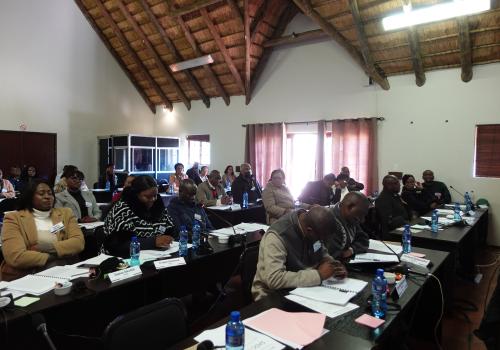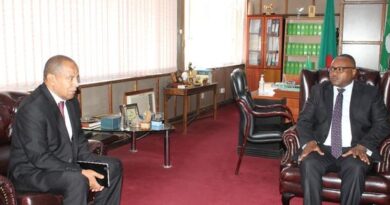SADC Border Officials Receive Advanced Customer Service Training to Boost Regional Tourism
On July 11, 2024, over 40 immigration and border control officials from 11 Southern African Development Community (SADC) member states completed advanced customer service training aimed at enhancing the tourism experience in Southern Africa.
Participants from Botswana, Eswatini, Lesotho, Madagascar, Malawi, Mauritius, Namibia, Seychelles, South Africa, Tanzania, Zambia, and Zimbabwe attended the workshop at the Mangwa Valley Game Lodge in the Dinokeng Game Reserve.
This training is a crucial element of the SADC Tourism Programme 2020-2030, designed to equip border officials with essential customer service skills to ensure a more welcoming and efficient experience for travelers.
The workshop, organized by the SADC Business Council Tourism Alliance and the SADC Secretariat, in collaboration with the Joint Action NaturAfrica/Climate Resilience and Natural Resource Management (C-NRM) Programme, represents a significant step toward improving tourism infrastructure and service quality in the region.
Supported by the European Union and Germany’s Federal Ministry for Economic Cooperation and Development (BMZ), the programme underscores SADC’s commitment to boosting tourism—a key driver of economic growth in the region.
The training included coursework on the economic importance of tourism, customer service principles, effective communication techniques, cultural sensitivity, problem-solving, and creating customer service action plans. Participants also engaged in experiential activities like game drives to understand the tourism industry better and foster camaraderie.
Mr. Moreri Mabote, Senior Programme Officer for Tourism at the SADC Secretariat, emphasized the importance of border personnel in shaping visitors’ first impressions.
“The Train the Trainer Tourism Customer Service Workshop is the first step in creating coursework and training senior border management officials to improve interactions with tourists and facilitate better communication,” he stated.
Ms. Natalia Rosa, SADC Business Council Tourism Alliance Project Lead, highlighted the training’s alignment with the SADC Tourism Programme’s goals. “Empowering border officials with customer service skills will significantly elevate tourists’ perceptions of our destinations and encourage increased visits,” she said.
She also pointed out the critical role of streamlined, welcoming border procedures in realizing tourism’s potential to drive job creation and prosperity across the SADC region.
Participants praised the workshop for its valuable insights and practical knowledge, recognizing their significant role in shaping the tourism industry. The Train the Trainer model ensures that these officials will pass on their training to colleagues across the 11 participating countries.
They will remain engaged through feedback surveys and an online discussion portal to share successes, challenges, and suggestions, with ongoing monitoring to track improvements in tourist satisfaction and border efficiency.



